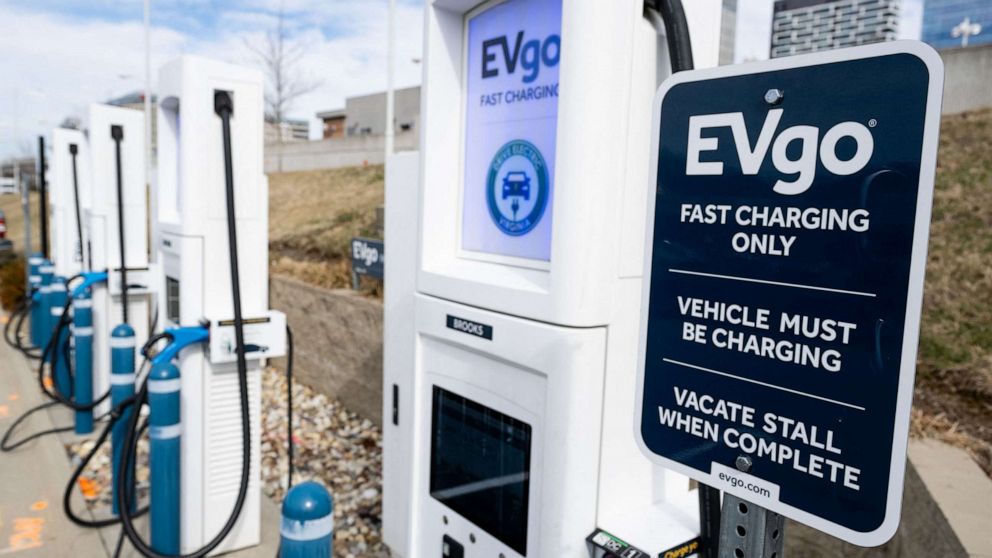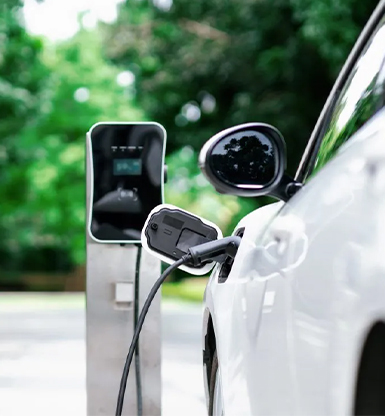Expert Opinions and Market Insights When You Buy EV Charging news
Expert Opinions and Market Insights When You Buy EV Charging news
Blog Article
New Dope in EV Charging: How the Sector Is Developing to Meet Need
As the electrical automobile (EV) market proceeds to expand, the billing facilities is going through substantial transformations to attend to the surging demand. Trick developments in ultra-fast billing innovations, combined with smart grid assimilation, are improving the landscape. Additionally, innovations in battery innovation pledge improved efficiency and sustainability. The search of global charging requirements continues to be an important element in allowing seamless user experiences and extensive fostering. The ramifications of these improvements elevate important concerns about the future of EV billing and its duty in the more comprehensive energy ecosystem.
Development of Charging Facilities
The quick expansion of electrical automobile (EV) charging facilities is a vital part in facilitating the extensive fostering of electrical flexibility. As governments, private business, and consumers significantly identify the importance of decreasing carbon discharges, financial investments accountable networks have actually risen. This infrastructure growth is vital to alleviate range anxiety, guaranteeing that EV individuals have hassle-free accessibility to billing terminals.
Substantial advancements in charging station technology and implementation methods have actually arised. Urban areas are seeing a spreading of public billing terminals, while rural regions are gradually being integrated into the charging network. Partnerships in between vehicle suppliers and billing carriers are coming to be more usual, facilitating the establishment of thorough networks that boost customer experience and availability.
In addition, the integration of eco-friendly power sources into billing stations is acquiring energy, advertising sustainability in the EV ecological community. This change not just supports ecological objectives but additionally aligns with the increasing demand for environment-friendly energy solutions amongst consumers.
Ultra-Fast Charging Technologies
Ultra-fast charging technologies stand for a significant jump onward in the EV charging landscape, enabling electrical lorries to charge in a portion of the time contrasted to traditional charging techniques. These innovations normally supply power levels exceeding 150 kW, with some systems rising to 350 kW or even more, considerably lowering charging times to just 15-30 minutes for a considerable fee.
Trick allowing modern technologies include developments in battery chemistry, power electronic devices, and thermal management systems. High-capacity batteries with boosted thermal stability enable for faster billing without overheating. EV Charging news. Additionally, developments in billing framework, such as liquid-cooled cable televisions and modular charging terminals, promote efficient power transfer, improving the total individual experience
Significant vehicle producers and technology firms are actively spending in ultra-fast billing networks, acknowledging the crucial function they play in getting over array anxiety and speeding up the fostering of electrical lorries. As these technologies become more widely available, the EV market is expected to witness significant development, making electrical flexibility a more attractive choice for consumers. Overall, ultra-fast charging modern technologies are pivotal fit the future of lasting transport, leading the method for a much more substantial and effective charging environment.
Smart Grid Assimilation

With need feedback strategies, smart grid systems can adjust charging routines based on grid conditions and electricity rates. For instance, throughout durations of high need, billing can be delayed to off-peak hours, causing lower prices for consumers and reduced pressure on the grid. Furthermore, vehicle-to-grid (V2G) modern technologies allow EVs to discharge power back into the grid, offering secondary solutions and improving grid security.
Combination with renewable resource sources better enhances the sustainability of EV charging. By aligning billing activities with durations of high solar or wind generation, wise grids promote a greener billing facilities. Ultimately, clever grid combination not just sustains the growing need for EVs but also adds to an extra sustainable and resistant energy future, placing the market for long-term success.
Battery Innovations
Among the rapid advancement of electric lorries (EVs), battery developments stand at the forefront, index driving improvements in performance, effectiveness, and sustainability. As the need for EVs surges, makers and researchers are concentrating on improving battery technologies to attend to challenges such as variety anxiety and charging times.
Lithium-ion batteries continue to be the most widely utilized modern technology, yet brand-new products and chemistries are arising to improve energy density and longevity. Solid-state batteries, for example, guarantee higher energy storage capability and improved safety and security by changing fluid electrolytes with strong ones. This shift might significantly decrease the danger of fire and increase the lifespan of batteries.
Additionally, innovations in battery reusing procedures are vital for sustainability. Firms are creating approaches to recoup beneficial products like lithium, cobalt, and nickel from utilized batteries, advertising a circular economic climate and minimizing ecological effect.

Global Charging Criteria

Efforts are underway to establish worldwide billing criteria more tips here that facilitate compatibility among different EV versions and charging terminals. Organizations such as the International Electrotechnical Compensation (IEC) and the Culture of Automotive Engineers (SAE) are working collaboratively with automotive manufacturers and energy carriers to develop thorough standards. EV Charging news. These standards objective to enhance the billing process, reduce the need for several adapters, and enhance user experience
Furthermore, standardization can significantly strengthen the growth of the billing network, as it urges investment by making framework growth more effective and foreseeable. As the EV market develops, a unified method to charging requirements will certainly be important for guaranteeing that consumers can bill their lorries easily and dependably, thereby sustaining the broader More about the author change to sustainable transport.
Conclusion
The electrical car billing industry is going through substantial improvement to resolve the rising need for lasting transportation. Developments in charging facilities, ultra-fast innovations, clever grid combination, and ingenious battery solutions are crucial in enhancing individual experience and functional efficiency.
Urban areas are seeing a spreading of public billing stations, while rural areas are progressively being integrated into the charging network. In addition, advancements in billing facilities, such as liquid-cooled cords and modular billing terminals, facilitate effective power transfer, improving the general customer experience.
Overall, ultra-fast charging innovations are crucial in forming the future of lasting transportation, paving the way for a much more extensive and effective billing community. - EV Charging news
By lining up billing tasks with durations of high solar or wind generation, clever grids advertise a greener billing framework.Initiatives are underway to develop global charging criteria that facilitate compatibility among various EV models and billing terminals.
Report this page